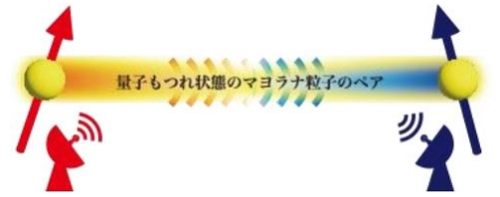2023-12-05 ワシントン州立大学(WSU)
◆硬い金属などでできた剛性のあるロボットに比べて、ソフトロボットは心理的な優位性を持つ可能性があります。この発見により、将来的なロボットとの協力や交代が物理的にも心理的にもより受け入れられる可能性が示唆されています。柔軟なロボットはコストや安全性の面で優れており、将来的な産業や介護の分野で有望な活躍が期待されます。
<関連情報>
- https://news.wsu.edu/press-release/2023/12/05/exposure-to-soft-robots-decreases-human-fears-about-working-with-them/
- https://www.tandfonline.com/doi/abs/10.1080/24725838.2023.2284193
ソフトロボットに対する心理社会的反応に及ぼす事前ロボット経験、速度、近接性の影響 Effects of Prior Robot Experience, Speed, and Proximity on Psychosocial Reactions to a Soft Growing Robot
Tahira M. Probsta ,Rebecca J. Lindgren,Ryan J. Dorosh,Justin C. Allen,Lorraine S. Pascual& Ming Luo
IISE Transactions on Occupational Ergonomics and Human Factors Published:16 Nov 2023
DOI:https://doi.org/10.1080/24725838.2023.2284193
Occupational Applications
After viewing video vignettes of human interactions with a novel soft growing robot, we found that participants reported fewer perceived safety hazards, less anxiety and fear about robots, reduced social hesitancy about human-robot collaboration (HRC), and lower technology-induced fears of job insecurity. Unlike prior research with traditional rigid manipulators, we found that the manipulated proximity of the human-robot interactions was unrelated to any of these outcomes, suggesting closer interactions may be possible without adverse psychological resistance. On the other hand, fear of robots, perceived hazards, technology-induced job insecurity, and robot anxiety were all significantly lower when human-robot interactions were slower. Interestingly, participants with more extensive prior robot experience displayed preferences for faster HRC interactions. Many occupations are ripe for automation within the next two decades, yet technical and psychological barriers to adoption remain. Our research suggests that novel soft growing flexible robots may be a fruitful area for future advancements.
Technical Abstract
Background
A growing body of literature exists on the determinants of psychosocial reactions to human-robot collaboration (HRC), including prior experience working with robots, speed of human-robot interactions, and the level of proximity between the human and the robot. However, the results from this emerging literature and implications for occupational settings have largely been based on research involving traditional rigid robots.
Purpose
Advancements in novel soft growing flexible robots necessitate evaluating how and whether such prior research generalizes to this new class of robots.
Methods
By manipulating the speed and proximity of an HRC task, and by measuring psychosocial robot-related attitudes pre- and post-task among research participants (N = 112), we evaluated the main and interactive effects of speed, proximity, and prior robot experience on perceived safety hazards, fear of robots, robot anxiety, technology-induced job insecurity, and social hesitancy toward robots.
Results
Following observations of HRC with the novel soft robot, participants perceived fewer safety hazards associated with working with robots, expressed less anxiety and fear about robots, reported less social hesitancy about HRC, and had lower levels of technology-induced fears of job insecurity. Proximity was unrelated to any of these outcomes, whereas fear of robots, perceived hazards, technology-induced job insecurity, and robot anxiety were all significantly lower under slower speed conditions. Finally, participants with more extensive prior robot experience displayed preferences for faster HRC interactions.
Conclusions
Many occupations are ripe for automation, yet technical and psychological barriers to adoption remain. Our findings indicate potential advantages posed by novel soft growing robots relative to traditional rigid robots. Closer interactions without adverse effects on psychosocial reactions may be possible with this newer class of robots. Developing variable speed soft robots, which can be adjusted as user experience grows, may also be useful technical avenue to pursue.




